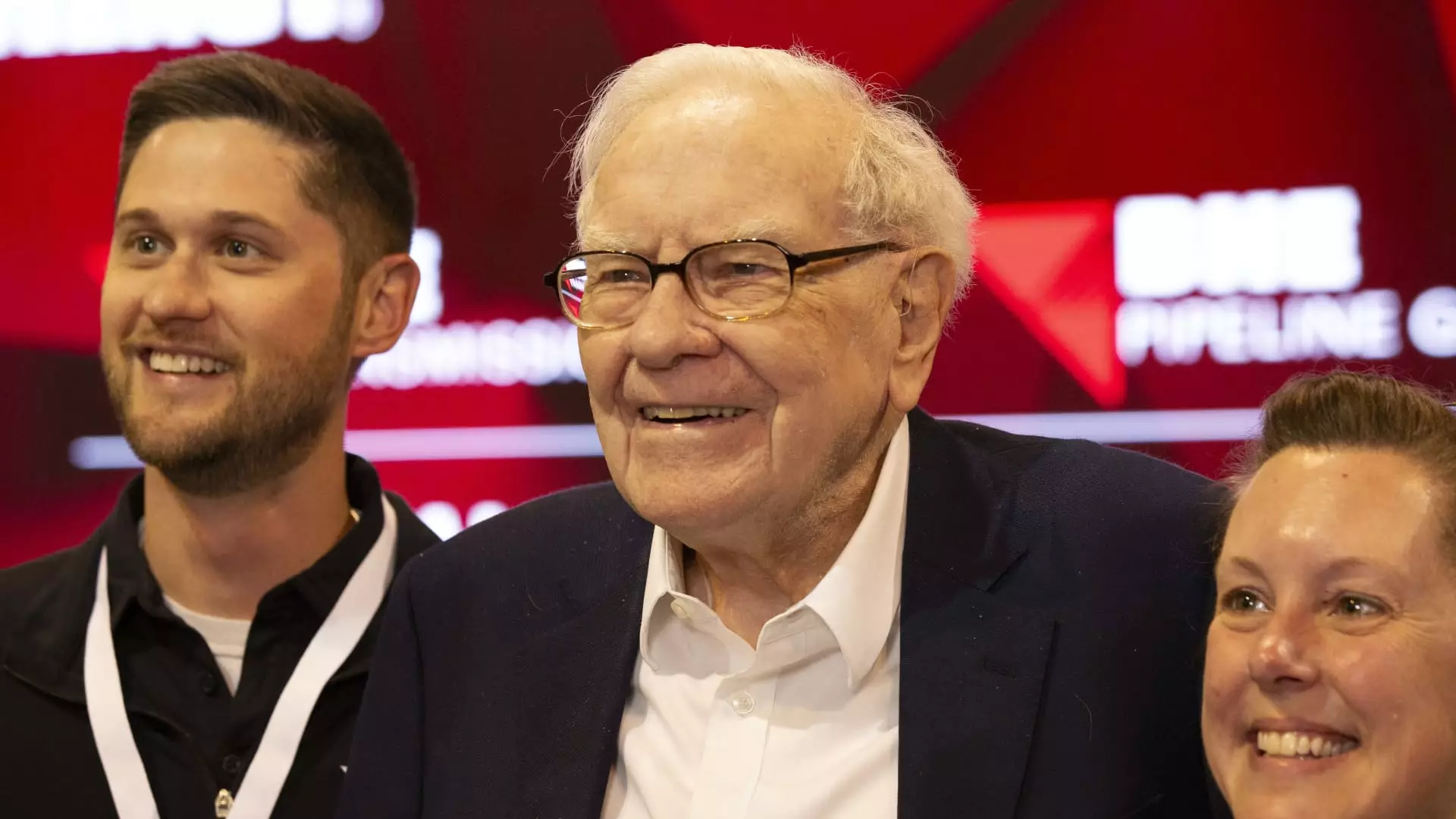Warren Buffett, the venerable CEO of Berkshire Hathaway, is poised to address an audience of shareholders and admirers at a crucial time marked by a confluence of market pressures. As he prepares to release his annual letter this coming Saturday at 8 a.m. ET, the financial and investment communities are eagerly anticipating insights from the 94-year-old mogul. This year, the stakes feel particularly high as Buffett contends with a fresh wave of trade tensions, devastating wildfires, and a notable selling spree of Berkshire’s stock.
Buffett’s annual letter is traditionally a window into his perspective on market trends, economic challenges, and the operational health of Berkshire’s diverse portfolio. Given recent events, this year’s insights are of heightened importance. With the backdrop of a looming trade war, heightened tariffs, and the catastrophic impact of wildfires in California, market observers are keen to gauge how these elements might be influencing Buffett’s strategic thinking.
California’s wildfires, in particular, represent a significant exposure for Berkshire, especially through its extensive reinsurance operations. Although Berkshire does not primarily operate within the California insurance market, the predicted insured losses could exceed $40 billion. Analysts are closely watching for comments on this issue, as they try to gauge how these unprecedented losses might affect Berkshire’s bottom line. Some analysts project losses in the range of $1 billion for Berkshire’s reinsurance unit, coupled with additional claims from its Geico subsidiary, which remains one of the leading auto insurers in the state.
In addition to natural disasters, the repercussions of President Trump’s trade policies have been a recurrent theme in Buffett’s past letters. The imposition of 25% tariffs on goods from Mexico and Canada, along with significant tariffs on Chinese imports, set a tense economic backdrop. Historically, Buffett has criticized tariffs as detrimental to consumers and the broader economy. Investors are particularly keen to understand whether he will express similar sentiments this year and how these policies might influence Berkshire’s various business operations.
As companies within Berkshire’s portfolio navigate the implications of increased tariffs—especially those in materials and construction—there’s a strong likelihood that there will be ripple effects that can affect their performance. The question remains whether Buffett believes these trade restrictions could spark inflationary pressures, making everyday goods more expensive for consumers.
Another focal point for investors is Buffett’s recent disposition of Berkshire’s sizeable stock holdings. The most discussed element has been the divestiture of shares in Bank of America. After selling off additional shares, Berkshire’s stake has dipped below the symbolic level of 700 million shares, raising eyebrows concerning Buffett’s larger investment strategy. Analysts have noted that this marks a continuation of a trend—Berkshire’s stock sales have reliably outpaced purchases over the past nine quarters, resulting in an unprecedented cash reserve exceeding $300 billion by late 2024.
This massive war chest, juxtaposed with a drawdown in equity positions, suggests that Buffett sees the current market landscape as overly inflated. His lack of movement into new public stock investments may indicate a defensive posture aimed at preserving capital amid rising valuations across sectors. Should Buffett express concerns about market overvaluation in his forthcoming letter, it could serve as a clarion call for caution among investors.
As Buffett’s tenure approaches its twilight, questions regarding succession at Berkshire Hathaway remain a topic of intrigue. Recent moves, such as acquiring the remaining shares of Berkshire Hathaway Energy and settling litigations with key stakeholders, have been interpreted as signaling preparation for a seamless transition in leadership. Greg Abel, poised to step into Buffett’s shoes, will likely face the challenge of steering Berkshire through a rapidly evolving economic landscape.
Buffett’s diligence in strengthening the company’s infrastructure creates confidence that Berkshire is better positioned for any leadership transition. By addressing outstanding issues on the company’s balance sheet, he demonstrates a commitment to leaving behind a robust legacy for his successor.
Buffett’s upcoming shareholder address encapsulates a pivotal moment for both him and Berkshire Hathaway in the face of mounting uncertainties. From the potential impacts of climate-related disasters to the ramifications of trade policies, the investment landscape is fraught with challenges. Investors will be looking for Buffett’s wise counsel on navigating these treacherous waters, revealing not only his reflections on current events but also a vision for Berkshire’s future trajectory. As anticipation builds for this critical letter, market participants remain attentive to Buffett’s insights, which have historically possessed the power to shape market sentiment and investor behavior in profound ways.

